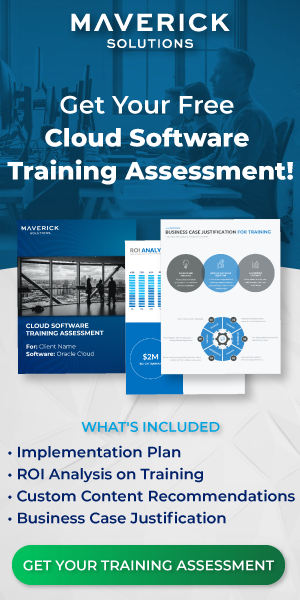What is Oracle EPM Cloud?
EPM stands for Enterprise Performance Management. Oracle EPM Cloud is a separate cloud application from Oracle ERP, Enterprise Resource Planning, Cloud. Oracle EPM Cloud monitors, analyzes, and manages an organization’s performance by evaluating and allocating resources. It is generally the go-to resource for the Chief Financial Officer (CFO) or the Finance department of an organization.
Oracle ERP Cloud focuses on the following:
- Project Management
- Financials
- Supply Chain Management
- Risk Management
- Procurement
While Oracle EPM Cloud focuses on the following:
- Planning
- Profitability and Cost Management
- Financial Consolidation and Close
- Account Reconciliation
- Tax Reporting
- Narrative Reporting
- Enterprise Data Management
The two Oracle suites can be integrated so they “talk” to each other and share data between the systems.[/vc_column_text][vc_column_text]
Differences between Oracle EPM Standard Cloud and Oracle EPM Enterprise Cloud
Oracle has two EPM offerings. Standard EPM and Enterprise EPM. Standard EPM is primarily for small and mid-size businesses whose performance management needs aren’t quite as complex as larger companies. Enterprise EPM is primarily for…enterprises.
Standard EPM comes with the following:
- Planning
- Financial Consolidation and Close
- Account Reconciliation
- Narrative Reporting
- Data Management

Enterprise EPM comes with the following:
- Planning
- Financial Consolidation and Close
- Account Reconciliation
- Narrative Reporting
- Profitability and Cost Management
- Tax Reporting
- Enterprise Data Management
Note: Standard EPM and Enterprise EPM both have Data Management capabilities. However, Data Management for Enterprise EPM is Enterprise Data Management.
Let’s talk about the parts of both Oracle EPM Cloud offerings.[/vc_column_text][vc_column_text]
Oracle Planning Cloud
Oracle Planning Cloud (formerly referred to as EPBCS) is available in both Standard and Enterprise EPM. Oracle Planning Cloud includes planning and budgeting solutions, workforce planning solutions, and long-range planning solutions.
The planning and budgeting functions are a direct replacement for spreadsheets. However, the planning and budgeting functions feature an increased flexibility and security the spreadsheets lacked. You can plan expenses, strategy, capital investments, assets, projects, and more.
Workforce planning allows you to easily keep track of headcount and compensation as they relate to strategic objectives and available resources.
Long-range planning is the “what-if” tool that allows you to model situations, plan for different outcomes, and test plans for weak points.
Companies commonly create dashboards that involve current models or forecasts for capital, financial projects, and workforce. The flexibility of available analytics is the true benefit of Oracle’s Planning Cloud for any business.
Planning comes with both Standard and Enterprise EPM solutions. There are still differences between Oracle EPM Standard Cloud and Oracle EPM Enterprise Cloud. Namely, Oracle Planning Cloud within Oracle EPM Enterprise Cloud, Planning includes custom planning, freeform planning, and groovy support. Groovy support allows you to go beyond the pre-seeded configurable content and templates for an entirely customizable experience.[/vc_column_text][vc_column_text]
Oracle Financial Consolidation and Close (FCCS) Cloud and Account Reconciliation Cloud (ARCS)
Both Oracle FCCS Cloud and Oracle ARCS Cloud are available in both Standard and Enterprise EPM.
Finances have a reputation of being a nightmare in the business world, but they do not have to be! Oracle FCCS Cloud within Oracle EPM Cloud is specifically designed to remove bottlenecks in the finance process and provide accurate data estimates at any point for use in planning. You can assign tasks (useful for audit compliance), create dashboards (to monitor health), easily consolidate complex finances by utilizing the hierarchy system, manage key performance indicators, and even automate intercompany eliminations. Painful elements like cash flow, balance sheet, income statement, and rollovers are calculated automatically, and you can consolidate global organizations with GAAP-driven apps.
With the addition of Enterprise EPM, you can create custom consolidation calculations, ownership structures, automate the consolidation and close tasks, and integrate intelligent process automation.
Once the accounts are consolidated, they are transferred into the Account Reconciliation area of EPM where they are reconciled. You can set the system up to automate finance account validation and verify the accuracy of account balances. Oracle ARCS Cloud performs transaction matching with its auto-match feature that can match millions of transactions in a matter of minutes. It also gives you the ability to confirm or decline the matches it finds. ARCS has both pre-built formats and custom formats so your business can have compliant reconciliations with little effort.[/vc_column_text][vc_column_text]
Narrative Reporting
The Narrative Reporting area is available in both Standard and Enterprise Cloud.
Have you ever had to collaborate on a report with someone at work and struggled to find the most efficient way to share data, co-write sections, and make sure everyone always has the most up-to-date version of the report? The Narrative Reporting area of Oracle EPM Cloud solves these problems. You can include multiple report authors, manage reviews, access source data directly to easily combine data and report content, securely transfer reports to stakeholders, and use pre-formed regulatory templates. Additionally, if you already have template, you can import them into the system.
One of the differences between Oracle EPM Standard Cloud and Oracle EPM Enterprise Cloud is that EPM Enterprise Cloud has disclosure management capabilities.[/vc_column_text][vc_column_text]Data Management – Oracle EPM Standard Cloud
All of Oracle EPM Cloud relies on data, so it is helpful to have an entire area of EPM dedicated to management. What can you do with data management? You can connect Oracle EPM Cloud to any business application (usually an ERP system) and import data from the connected applications.
With Oracle EPM Standard Cloud, you can do the following:
- Get data
- Edit data
- View data
- Send data

Now, let’s talk about the other offerings that are included in Enterprise EPM.
Data Management – Oracle EPM Enterprise Cloud
Oracle’s Enterprise Data Management allows you to connect both Oracle and non-oracle business applications and import the data using a simple wizard. You can validate data quality, synchronize data across applications, collaborate on data editing, create visuals, and export, automate, and download data.
Oracle Profitability and Cost Management Cloud
Oracle Profitability and Cost Management Cloud is designed to give your business full insight into businesses operations. It pulls information from your financial data in any system you connect to create models so you can see at a glance which segments of your business are profitable, and how costs are allocated – even on mobile! These models can be dashboards, reports, pre-built graphs, KPIs, ad hoc analyses, and variance analyses.
You can automate tax pricing transfers with a compliant audit trail, model regulatory costs to see how much of your profit goes to price/rate negotiations, overhead, insurance, utilities, and more. These models are entirely customizable and can be modified and changed by business owners and experts without rebuilding the model or relying on the IT department. The profitability and cost management cloud also gives you the ability to run What-if analyses to see the impact of business and regulatory changes on profit prior to implementing the change. Finally, you can run validation reports to ensure costs and profits are fully allocated and where you expect them to be.
Oracle Tax Reporting Cloud
Oracle Tax Reporting Cloud takes the headaches out of tax season. Since it is connected to the EPM system you can streamline your tax process by pulling in data directly from FCCS or General Ledger and automatically calculate and generate tax journal entries on a schedule. Tax Reporting Cloud can use both US GAAP and IFRS requirements. Oracle Tax Reporting Cloud can be linked to your tax return software to import and export tax details with ease.
Once taxes are done, you can analyze the tax data, collaborate with users by sending the data to narrative reporting, and track tax performance with dashboards and KPIs. This ensures you are meeting all critical deadlines.[/vc_column_text][vc_column_text]
Considerations
With all the differences between Oracle EPM Standard Cloud and Oracle EPM Enterprise Cloud, there is one notable feature they have in common. You can only deploy one business process per subscription. For Oracle EPM Standard Cloud, this means you can deploy Planning, Financial Consolidation and Close, or Account Reconciliation. To get all three at the same time you need three separate Oracle EPM Standard Cloud subscriptions. For Oracle EPM Enterprise Cloud, this means you can deploy Planning, Financial Consolidation and Close, Account Reconciliation, Narrative Reporting, Enterprise Data Management, Profitability and Cost Management, or Tax Reporting. To get all seven at the same time you need seven separate Oracle EPM Enterprise Cloud instances.
Oracle EPM Cloud can do so many things, you may be wondering, how you can optimize it for your business. Or you may be wondering it Oracle EPM Cloud will actually save you time.
We have an answer for that too! Maverick Solutions provides in-depth documentation and practice tutorials for Oracle Planning, Financial Consolidation and Close, Account Reconciliation, and Enterprise Data Management Cloud with all subscriptions. Our courses guide you with step-by-step instructions through Oracle’s user interface to demonstrate how you can set up and maintain EPM to best suit your business.[/vc_column_text][vc_column_text]Need a specific process that is not included in our standard curriculum content? Or want the process shown in your own server specifically instead of ours? We also create custom content!
You can get all of this and more with ENGAGE by Maverick. ENGAGE is Maverick Solutions’ subscription-based training content on all Oracle Cloud applications. It is fully customizable, comprehensive, and available 24/7/365. If you want to know how Maverick Solutions can fit into your organization’s current or future Oracle projects, speak with one of our training experts today!



